This blog was written by Charlotte Jenner, Communications Officer, Humanitarian Education Accelerator. These issues were discussed during a session at the September 2019 UKFIET conference on inclusive education systems.
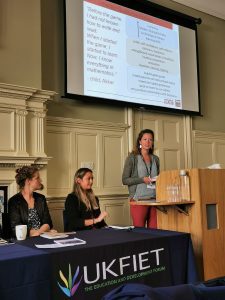 A key objective of the Humanitarian Education Accelerator (HEA) – a DFID-funded partnership between UNHCR and UNICEF – has been to generate evidence on what works (and does not work) in humanitarian education, whilst providing tailored support on M&E and scaling to grantees as they navigate their journey to scale.
A key objective of the Humanitarian Education Accelerator (HEA) – a DFID-funded partnership between UNHCR and UNICEF – has been to generate evidence on what works (and does not work) in humanitarian education, whilst providing tailored support on M&E and scaling to grantees as they navigate their journey to scale.
As we have worked towards that goal, it has become clear that what we do with that evidence, as well as the multitude of wider learnings that have been captured during the programme to date, is an equally significant piece of the puzzle. We believe it is vital that the lessons we have learned do not only inform those within our programme but reach and inform other actors – from researchers and practitioners to donors and governments – who are thinking through the same challenges.
In addition to establishing the HEA Learnings Series – a platform for sharing key evidence and learnings, with the aim of building a wider, cross-sector conversation – the HEA has coordinated national engagement events and attended a number of international conferences in 2019, culminating in our symposium and workshop at UKFIET 2019. Together with our research partners – American Institutes for Research (AIR) – and our 5 grantees – Caritas Switzerland, Kepler, Libraries Without Borders, War Child Holland and World University Services Canada (WUSC) – the HEA took the opportunity of presenting at UKFIET to not only share what each team has learned on their journey to scale but to spark a conversation around six key themes we have identified for scaling humanitarian education.
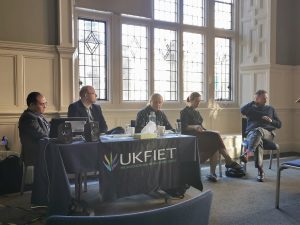 Whilst UKFIET 2019 was our final conference together with the full first cohort of grantees, the HEA is only at the beginning of a long term process of building the conversation around what we have learned and the evidence we have collected – including presenting our research at further conferences. Our ambition is to partner and engage further so that we can build an open community of practice around scaling humanitarian education. In order to do that we as a programme must also reflect on what we have learned so far about the process of sharing our findings and building a conversation around scaling.
Whilst UKFIET 2019 was our final conference together with the full first cohort of grantees, the HEA is only at the beginning of a long term process of building the conversation around what we have learned and the evidence we have collected – including presenting our research at further conferences. Our ambition is to partner and engage further so that we can build an open community of practice around scaling humanitarian education. In order to do that we as a programme must also reflect on what we have learned so far about the process of sharing our findings and building a conversation around scaling.
Some initial reflections are:
- Building connections: Whilst conferences like UKFIET provide an important platform for disseminating our research findings and learnings, significant value also lies in the discussion and connections that can be made with others who are doing work in a similar area. As a programme, we found UKFIET’s workshop and panel Q&A formats provided an opportunity for our teams to be engaged in interesting exchanges with others, which built upon and fleshed out some of their learnings. From the research perspective, we found that a lot of questions from other practitioners during our UKFIET presentations were on conducting research, as well as how to develop research methodologies and then embed them within longer-term programmes. Identifying that this remains an area of interest for practitioners is helpful for us as we develop how we share what we have learned in this area, and develop tools for practitioners more widely.
- The value of partnerships: While HEA research highlights the importance of partnerships for sustainable scale, we have similarly found that partnerships are important when trying to build communities of practice and open conversation around what we have learned. Through partnering with other platforms, programmes and practitioners, to support each other’s communications and/or learning aims, we have had the opportunity to extend our reach and invite more people to join the conversation. UKFIET 2019 provided us with a further opportunity to engage with other actors and share our learnings so that those operating in a similar space are able to benefit from our experiences.
- Balancing all needs: When it comes to building conversations, the individual teams supported by the HEA will often have some different needs to the HEA as a whole – in terms of who they need to connect with and what they wish to learn. UKFIET provided a space for the individual teams to find their particular community of practice outside of the HEA (where the commonality is scaling but the content of programming can be relatively diverse) in order to take a deeper dive into specific solutions – in relation to teacher training or EdTech programmes for example, for which the HEA does not provide specific support.
- Diversifying the audience: An issue that came up repeatedly during our discussions at UKFIET was the need for donors to be engaged in the conversations we were having around the challenges related to research and scaling, as well as the complexities of fundraising and the need for flexible long-term funding in the humanitarian education space. These discussions renewed our internal commitment to build the conversation and facilitate the sharing of learnings beyond the ‘usual suspects’ within the sector, so that we are speaking to a broad range of actors that include donors, in an open and free setting. A key part of this work is ensuring that conversations are also happening at the country level and in a way that makes sense within local partnership ecosystems.
So, what is next for the HEA? Informed by the insights we gained during our UKFIET workshop and wider panel discussions, we will continue to build the conversation around scaling and expand the evidence base on humanitarian education, in response to the needs of our communities of practice. This includes ensuring:
- A range of actors are engaged, with a particular focus on bringing donors into the conversation on research, evidence building and long-term flexible funding;
- Research findings, learnings and methodologies are communicated clearly, using accessible language and providing action based recommendations;
- We partner with a wide range of platforms and organisations.
For more information about our work and to join the conversation please follow, comment on and share our learnings on the HEA Learnings Series, and @HEAccelerator on Twitter.

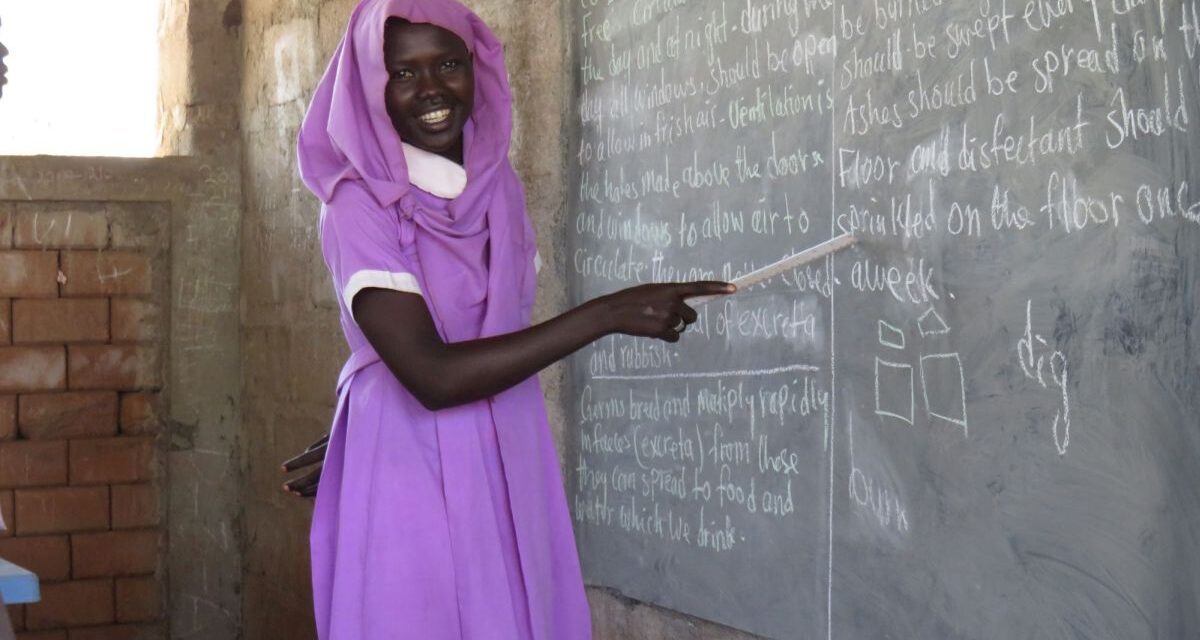

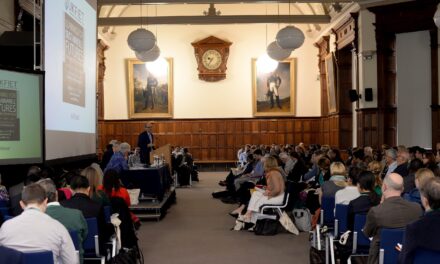
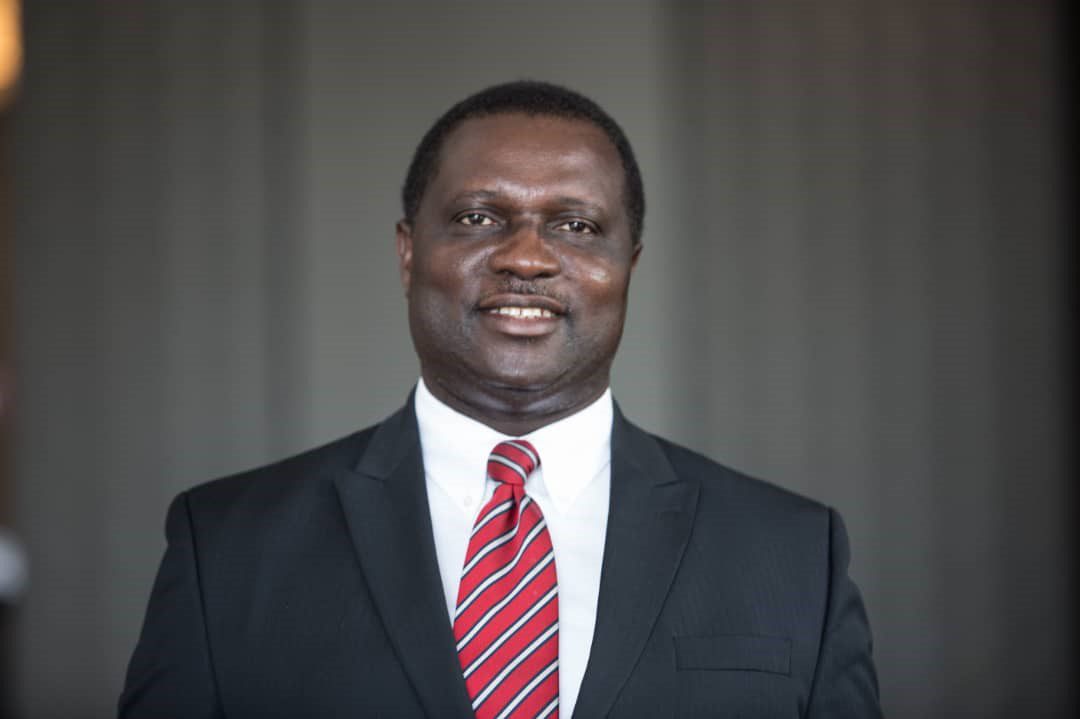
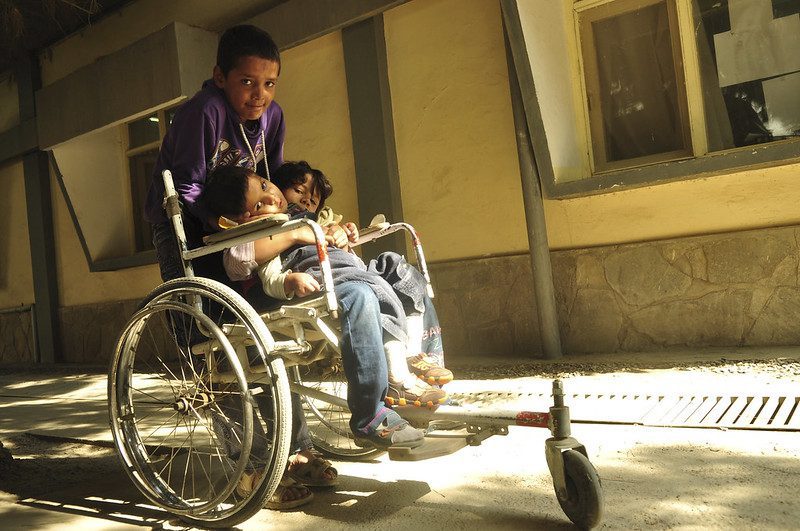
God Nigth from Bogotà Colombia. In the context of financiation of project educativos humanitarios too innovation my project it is HOTEL COMIC CITY It is acciones pedagògicas extraula for development skills of art and technology in the adolescent refugiados. Consist in visit the entorno educativo hotel comic city it is interactivo y divertido al observar in the paredes diseños de dibujos còmic what contribute inspira development the imagination and creativity, skills in intelligence mùltiple in the adolescent refugiados colombians and venezolans.